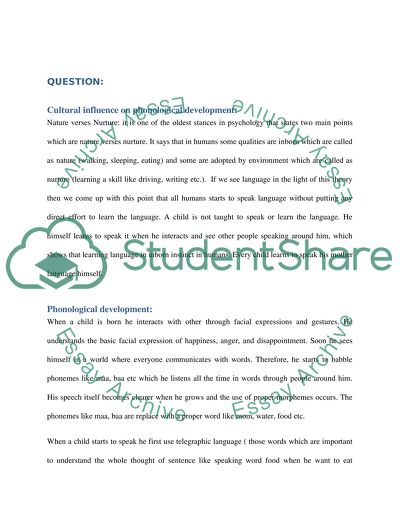Cite this document
(“Speech Language and the Developing Child Essay Example | Topics and Well Written Essays - 1000 words”, n.d.)
Retrieved from https://studentshare.org/psychology/1430396-speech-language-and-the-developing-child
Retrieved from https://studentshare.org/psychology/1430396-speech-language-and-the-developing-child
(Speech Language and the Developing Child Essay Example | Topics and Well Written Essays - 1000 Words)
https://studentshare.org/psychology/1430396-speech-language-and-the-developing-child.
https://studentshare.org/psychology/1430396-speech-language-and-the-developing-child.
“Speech Language and the Developing Child Essay Example | Topics and Well Written Essays - 1000 Words”, n.d. https://studentshare.org/psychology/1430396-speech-language-and-the-developing-child.


